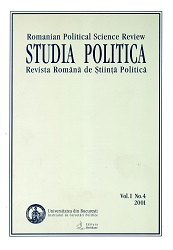At the Origins of the Romanian. Civic Culture. Theories of Ministerial Responsibility in the Romanian Constitutional Traditions
At the Origins of the Romanian. Civic Culture. Theories of Ministerial Responsibility in the Romanian Constitutional Traditions
Author(s): Radu CarpSubject(s): Politics / Political Sciences, Politics, History, Modern Age, Government/Political systems, 19th Century
Published by: Editura Universităţii din Bucureşti
Keywords: Civic culture; ministerial responsibility; western model; Constitution;
Summary/Abstract: The so called "forms without content" theory appears at the end of the 7th decade of the 19th century, coming from the finding that the new economical, social and political realities have been frequently a mechanical imitation of the western institutions, imitation which can have no result in a society still shaped by the old mentalities, insufficiently developed and, consequently, in great extent unprepared to take over successfully certain models which proved their effectiveness in the advanced societies only. Before starting the analyze of this theory and its perspective on the parliamentarian regime development, some specifications has to be done regarding the signification of the terms "form" and "content". The followers of the form without content theory did not stress on this issue. According to Z. Ornea, these terms "have no clear defined sphere and no object". Usually, it had been considered that these terms have no exclusive cultural signification. Tudor Vianu, for example, expressed the following hypothesis: the form is, in fact, only "the interior culture" and the content is "the constitutional regime" from that time. Eugen Lovinescu also had chosen for a wider signification of the antinomy between the two concepts, saying that it is about a cultural debate with a general sociological signification, which should not be ignored. On his turn, Z. Ornea consider that "form" designate "the external environment of the imported civilization" with extended connotations: the legislation (the Constitution of 1866 included), the political system, the arts and the culture, education institutions and so on and "content" means customs of that time and the social-economic situation.
Journal: Studia Politica. Romanian Political Science Review
- Issue Year: 1/2001
- Issue No: 4
- Page Range: 1065-1075
- Page Count: 11
- Language: English

